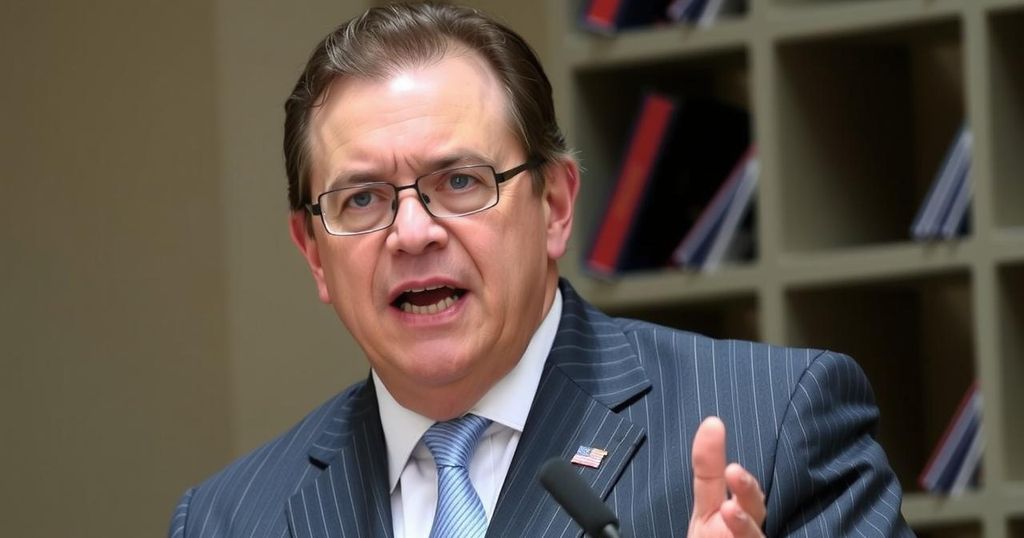Chile Protests Argentine Minister’s “Communist” Remarks Amid Tensions

The Chilean government has lodged a formal protest against Argentine Economy Minister Luis Toto Caputo, who referred to President Boric as a “Communist” during a radio interview. Caputo’s comments have been called “inappropriate and inaccurate” by Chile, and tensions between the two nations have escalated since President Javier Milei took office in Argentina. Caputo also criticized local political figures, exacerbating the strained relations.
The Chilean government, led by President Gabriel Boric Font, has formally protested against remarks made by Argentine Economy Minister Luis Toto Caputo, who labeled Boric a “Communist” during a radio interview. Caputo’s assertions, made in the context of discussing Chile’s cultural policies, were deemed “inappropriate and inaccurate” by Santiago. Following these comments, which highlighted a perceived mismanagement in Chile, Chilean officials conveyed their discontent through diplomatic channels.
In his remarks, Caputo asserted, “Today they are practically governed by a Communist who is about to sink them,” referring to President Boric. He further claimed that while Argentina, under President Javier Milei, is addressing pertinent socio-economic issues, Chile has failed to engage effectively in this cultural struggle. Moreover, he brought attention to the historical context of Chile’s economic improvements, stating, “Chile is the Latin American country that lifted more people out of poverty from the 1980s to 2010.” This tension has amplified due to recent related strains on diplomatic relations between the two countries, particularly after accusations of terrorism arising from Argentine officials.
Following the comments from Caputo, Santiago lodged a formal note of protest to Argentine Ambassador Jorge Faurie, emphasizing the Chilean government’s stance against these derogatory assertions. Additionally, Caputo criticized the administration of Buenos Aires Province Governor Axel Kicillof regarding plans to privatize Aerolíneas Argentinas, questioning Kicillof’s motives and warning of a potential mismanagement similar to past administrations. This incident exemplifies the increasingly tense bilateral relationship since President Milei took office, amid a broader critique of leftist politics in the region.
The diplomatic tensions between Chile and Argentina have been a recurring theme in their historical relationship, often influenced by political ideologies. Under President Gabriel Boric, Chile has embraced a more progressive agenda, while the recent election of Javier Milei in Argentina marked a shift towards a right-leaning government. Accusations by top officials from both countries have added strain to their interactions, especially concerning economic policies, cultural battles, and issues of national security, as evidenced by the recent Hezbollah allegations. The ongoing discourse reflects a broader tension regarding leftist policies across Latin America, where economic governance and ideological differences continue to polarize countries.
In conclusion, the remarks made by Argentine Economy Minister Luis Toto Caputo have sparked a significant diplomatic rift with Chile, as the latter rebuffed the claims of communism associated with President Boric. The incident highlights ongoing ideological divides in Latin America and serves as a reminder of the fragile nature of relations between neighboring countries, particularly amid contrasting political environments. The evolving dynamics between the leaders signify a continued scrutiny of socio-economic management in Chile and Argentina.
Original Source: en.mercopress.com







